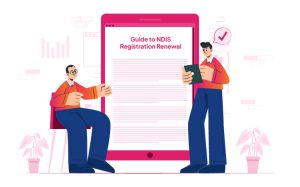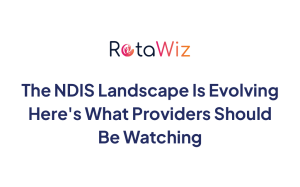20 June, 2025
The Untold Story of ABI in the NDIS: What the Latest Data Reveals About Support, Satisfaction & Gaps
NDIS latest news
3 min read
Acquired Brain Injury (ABI) can change a life in an instant. Whether caused by trauma, stroke, infection or substance-related injury, its impact is often lifelong—affecting how a person thinks, moves, communicates, and connects with the world. In Australia, the National Disability Insurance Scheme (NDIS) plays a crucial role in ensuring that people living with ABI get the tailored support they need to live as independently and meaningfully as possible.
But how well is the system supporting this cohort? What do we know about their needs, outcomes, and the services they’re accessing?

This visual snapshot breaks down the latest 2023–2024 data on ABI participants, offering insights into funding trends, age and gender demographics, cultural diversity, satisfaction scores, and the structure of provider payments. The findings are essential for those delivering or coordinating disability supports — especially as the demand for nuanced, person-centred care increases.
Understanding the Story Behind the Stats
While it’s heartening to see improvements in community participation and life control, other figures are more sobering. Employment rates remain low among ABI participants, carer employment is well below the NDIS average, and complaint rates are significantly higher than for other participant groups.
For providers, this data is not just informational — it’s directional. It prompts questions like:
- Are your supports truly inclusive and age-appropriate?
- Are you adapting to the growing need for ABI-specific pathways to work and education?
- Is your service experience consistent across the access, planning, and reassessment phases?
These questions are especially important for NDIS providers looking to scale effectively while delivering high-impact outcomes.
Enabling Better Care Through Smarter Systems
As providers respond to these complex needs, many are turning to technology to streamline their operations. Tools like RotaWiz — an intelligent rostering platform designed specifically for NDIS organisations — are helping providers align the right support workers with participant preferences, qualifications, and availability.
By automating the rostering process, platforms like RotaWiz not only save time but also improve service continuity and compliance — critical factors in improving participant satisfaction and reducing administrative errors. For ABI participants, who often require consistent, high-trust relationships with support staff, this type of operational precision is not just convenient — it’s essential.
Why This Matters in 2024 and Beyond
Australia’s disability support ecosystem is evolving rapidly. With the NDIS undergoing continual review and reform, now is the time for providers to refocus on three key areas: quality, cultural safety, and long-term participant wellbeing.
ABI participants don’t just need access — they need outcomes. And achieving those outcomes will require providers to invest in staff training, flexible care planning, and the integration of tools that enable more coordinated, transparent service delivery.
The data also underscores the need for greater advocacy, especially around employment and education transitions, and improved support for carers — many of whom are struggling to balance care responsibilities with workforce participation.
Final Thoughts
Behind every number is a person — someone rebuilding their life after a brain injury, navigating complex systems, and hoping to regain control of their future.
This data is not just a snapshot. It’s a mirror reflecting how far we’ve come — and how far we still need to go. The insights challenge us all to dig deeper, ask better questions, and design supports that are not only technically compliant but deeply human.
Let’s turn information into transformation — and create a future where people living with ABI have every opportunity to thrive.


